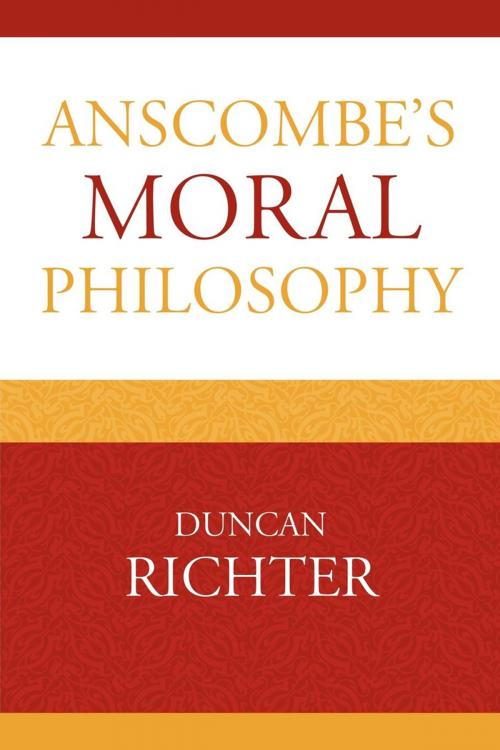Anscombe's Moral Philosophy
Nonfiction, Religion & Spirituality, Philosophy, Metaphysics, Ethics & Moral Philosophy| Author: | Duncan Richter | ISBN: | 9780739138861 |
| Publisher: | Lexington Books | Publication: | November 19, 2010 |
| Imprint: | Lexington Books | Language: | English |
| Author: | Duncan Richter |
| ISBN: | 9780739138861 |
| Publisher: | Lexington Books |
| Publication: | November 19, 2010 |
| Imprint: | Lexington Books |
| Language: | English |
G.E.M. Anscombe (1919-2001) was one of the most important, outspoken, and misunderstood philosophers of the twentieth century. More than anyone else she revived virtue ethics and the philosophy of action. She was also almost alone in publicly opposing Oxford University's decision to award an honorary degree to President Truman. She regarded his decision to authorize bombing Hiroshima and Nagasaki as murderous. Some liberals admire her for this stand, but conservatives also admire her for her opposition to abortion, contraception, and same-sex marriage. Clearly her values were not those of her times. This led her to reflect on the differences, producing such works as Modern Moral Philosophy, in which she rejected all modern theories of ethics. In this paper she coins the term 'consequentialism' to describe the dominant view, which she rejects, that what matters morally is the results of what one does. Put crudely, the ends can justify the means. If enough lives can be saved by targeting civilians, then civilians should be targeted. Against this, Anscombe insisted that certain actions are forbidden, which prompted her interest in the nature of action and its relation to a person's character. Whether one agrees with her or not, these are all issues that continue to be relevant and on which Anscombe's views are always strong and intelligently defended. Her presentation of these views, unfortunately, is often dense, and they are often badly misunderstood even by some very able minds. Anscombe's Moral Philosophy clarifies what Anscombe thought about ethics, showing how her different ideas connect and how she supported them. It also evaluates her reasoning, showing that it is stronger in some parts than in others. The five main chapters of the book deal in turn with her work on military ethics (including the so-called doctrine of double effect), her rejection of consequentialism, her attack on the modern, atheist notion of moral obligation, her analysis of intention and its relevance for ethics, and her controversial ideas about sex.
G.E.M. Anscombe (1919-2001) was one of the most important, outspoken, and misunderstood philosophers of the twentieth century. More than anyone else she revived virtue ethics and the philosophy of action. She was also almost alone in publicly opposing Oxford University's decision to award an honorary degree to President Truman. She regarded his decision to authorize bombing Hiroshima and Nagasaki as murderous. Some liberals admire her for this stand, but conservatives also admire her for her opposition to abortion, contraception, and same-sex marriage. Clearly her values were not those of her times. This led her to reflect on the differences, producing such works as Modern Moral Philosophy, in which she rejected all modern theories of ethics. In this paper she coins the term 'consequentialism' to describe the dominant view, which she rejects, that what matters morally is the results of what one does. Put crudely, the ends can justify the means. If enough lives can be saved by targeting civilians, then civilians should be targeted. Against this, Anscombe insisted that certain actions are forbidden, which prompted her interest in the nature of action and its relation to a person's character. Whether one agrees with her or not, these are all issues that continue to be relevant and on which Anscombe's views are always strong and intelligently defended. Her presentation of these views, unfortunately, is often dense, and they are often badly misunderstood even by some very able minds. Anscombe's Moral Philosophy clarifies what Anscombe thought about ethics, showing how her different ideas connect and how she supported them. It also evaluates her reasoning, showing that it is stronger in some parts than in others. The five main chapters of the book deal in turn with her work on military ethics (including the so-called doctrine of double effect), her rejection of consequentialism, her attack on the modern, atheist notion of moral obligation, her analysis of intention and its relevance for ethics, and her controversial ideas about sex.















